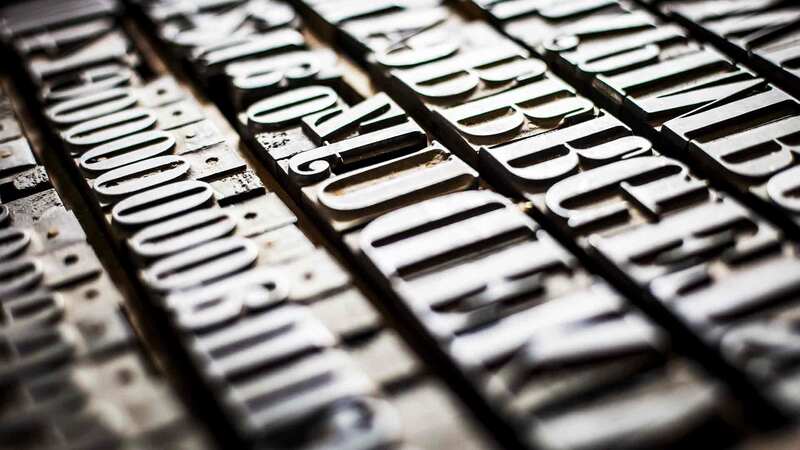You are viewing your 1 free article this month. Login to read more articles.
Bookstagram boundaries
“What’s a Bookstagram?” I’m asked, and it’s difficult to provide a straight answer that adequately summarises everything this platform does. It’s a community of like-minded individuals who want to discuss everything about books — from their covers to the authors, to the characters themselves — but it’s also a part of social media, and that comes with its pitfalls. It’s easy to forget this sometimes; the reason I enjoyed Bookstagram in the first place was because I didn’t have to see Photoshopped images or highlight reels (no pun intended) of other people’s stories. It felt like there was less pressure to be perfect. I still stand by this: Bookstagram has introduced me to some amazing people who I cherish, as well as some books I’d never have read otherwise.
But, especially as a disabled individual, it can also have a more insidious pressure that we don’t want to talk about. And we should talk about it.
As a disabled writer, I see this pressure spiral outwards. I feel it myself, amplified by chronic illness. Those on book Twitter, either as authors or readers, feeling pressure to “win” NaNoWriMo, to publish a book before a certain age, to read a certain amount of books a year
The pressure to read fast, widely, and only specific “Bookstagram” books is a by-product of the community that can come creeping in quietly or blazing through like an ill-fated storm. It’s hard to believe that you would succumb to reading what everyone else is reading when for so long reading has been your solitary hobby. Whether you meticulously carved out a reading list, or read when and where it suited you, perhaps it is this solitary beginning most of us have with reading that makes it so easy to fall into the pressure cooker. Unlike other social media, even highly followed Bookstagram accounts can feel like friends to you. This is its greatest strength — and downfall. When a friend recommends a book, you want to check it out. When hundreds of friends are recommending books, it can get overwhelming.
The pressure to create content is also an ever-present bugbear, with many people spending hours upon hours perfecting that beautiful flat-lay or breezing through books just so they can post reviews or win a Goodreads challenge. This isn’t to say that these actions in and of themselves are bad, but focusing on the numbers, the next post and the perfect picture are all ways Bookstagram can make you feel forced into churning out content quickly and perfectly, to the detriment of your health.
It may be hard to believe that this pressure could affect you in any tangible way. “So what?”, people might say — just don’t post, just don’t look, just don’t interact. That’s easier said than done. For most, Bookstagram is a hobby. You enjoy creating beautiful pictures, you enjoy writing reviews, and you enjoy reading. It’s when it becomes more of a chore fuelled by anxiety, rather than fun, that it becomes unhelpful. For the most part, you want to do these things – but it seems like you can’t ever spend as much time or creative headspace on the platform as feels expected. To engage the dreaded “algorithm”, it feels like you have to overstep your boundaries of what keeps you healthy, and this shouldn’t be the case.
Unless we talk about the days when we don’t have creative energy, when we don’t want to post, when we’d rather do anything else rather than write/read/take photographs, we’re encouraging Bookstagram — and the wider publishing industry — to continue to keep up its perfect facade. This is just not accessible, especially for minorities who have the added pressure on the platform to speak out about social justice issues affecting them in the community.
As a disabled writer, I see this pressure spiral outwards. I feel it myself, amplified by chronic illness. Those on book Twitter, either as authors or readers, feeling pressure to “win” NaNoWriMo, to publish a book before a certain age, to read a certain amount of books a year… or they’re not the writer or reader they claim to be. For minority authors, especially, the weight of the world can feel on your shoulders — with still a huge lack of diversity in the industry, your success is indicative of wider movements. But you’re a writer and you’re a reader regardless of how often you actually can manage to do those things, or even if you’re taking a break for a while. This is the mentality we should be shifting towards.
As writers and readers, we often feel a lot. This isn’t a bad thing — we’ve learnt so much compassion from all the words we’ve consumed, but we’ve also learnt there’s so much out there in the world that we haven’t yet tried. This can make us curious, driven, and hardworking, but it can also make us fall victim to perfectionism, competitiveness and jealousy. But it’s just not sustainable. Especially for those who are disabled, chronically ill, or under mental strain for whatever reason, this constant cycle of pressure is encouraging us to disregard our boundaries, and burnout. But boundaries aren’t just for things we don’t like. They can help us even when they’re for things we love.
Bookstagram did not create the problem of having to prove you have limitless stamina for perfect photos and witty phrases, where even bad days must be accounted for in a positive and inspirational way. But it does not exist outside of this problem either. If we are to lessen the pressure and the perfectionism, we must start respecting our own boundaries first. Going at your own pace not only helps you, but the whole community to become a more welcoming and accessible place for writers and authors alike.
Chloe Johnson is a freelance feature writer and deputy editor of Conscious Being magazine, which is by and for disabled women and non-binary folks, and covers everything arts, culture and disability. She is currently writing a novel.

















